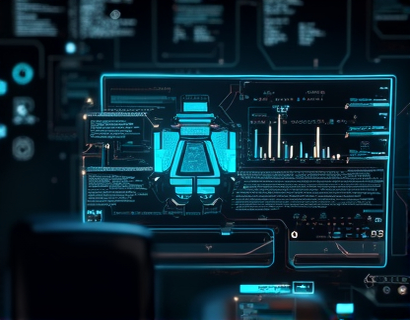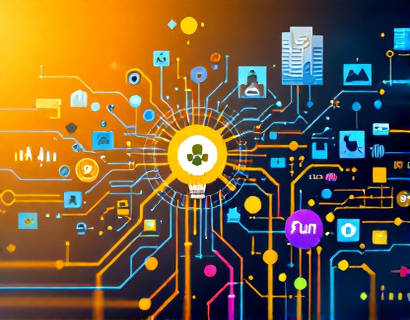AI-Driven Logistics Insights: Expert Knowledge with Safe Child-Friendly Learning for All Audiences
The logistics industry is a vital component of the global economy, facilitating the movement of goods and services across various sectors. With the advent of artificial intelligence (AI), the landscape of logistics is evolving rapidly, providing new insights and efficiencies that were previously unimaginable. This article explores the intersection of AI-driven logistics insights and child-friendly learning, offering a platform for professionals, educators, students, and industry enthusiasts to access reliable information in a safe environment.
Understanding AI in Logistics
Artificial intelligence refers to the simulation of human intelligence in machines programmed to think and learn. In logistics, AI technologies are being utilized to optimize supply chain management, enhance inventory control, and improve transportation efficiency. By analyzing vast amounts of data, AI can identify patterns and trends that help logistics professionals make informed decisions.
Key Applications of AI in Logistics
- Predictive Analytics: AI algorithms can forecast demand, allowing companies to adjust their inventory levels accordingly. This minimizes overstock and stockouts, leading to cost savings and improved customer satisfaction.
- Route Optimization: AI can analyze traffic patterns, weather conditions, and delivery schedules to determine the most efficient routes for transportation. This not only reduces fuel consumption but also enhances delivery speed.
- Warehouse Automation: Robotics and AI-driven systems can automate various warehouse operations, such as picking and packing, leading to increased efficiency and reduced labor costs.
- Supply Chain Visibility: AI tools provide real-time tracking of shipments, enabling companies to monitor their supply chains closely and respond quickly to any disruptions.
Child-Friendly Learning in Logistics
As the logistics industry continues to grow, it is essential to educate the next generation about its importance and operations. However, traditional learning resources may not always be suitable for younger audiences. This is where child-friendly learning platforms come into play, offering safe and engaging ways for children to explore logistics concepts.
Benefits of Child-Friendly Learning Platforms
- Safety: Child-friendly platforms ensure that the content is appropriate for all ages, providing a secure environment for young learners.
- Engagement: Interactive learning tools, such as games and quizzes, can make logistics concepts more relatable and enjoyable for children.
- Accessibility: These platforms can cater to various learning styles, ensuring that all children, regardless of their background, can grasp logistics concepts.
AI-Driven Chat Platforms for Logistics Insights
One of the most innovative applications of AI in logistics education is the development of chat platforms that provide users with specialized information. These platforms can serve a diverse audience, including logistics professionals, educators, students, and parents, offering tailored insights based on user queries.
Features of AI-Driven Chat Platforms
- Content Verification: Ensuring the accuracy of information is crucial, especially when it comes to educational resources. AI-driven chat platforms can verify content against reliable sources, providing users with trustworthy insights.
- Interactive Learning: Users can engage in real-time conversations with the AI, asking questions and receiving instant responses. This interactive approach enhances the learning experience.
- Child-Friendly Versions: These platforms can offer simplified explanations and age-appropriate content for younger audiences, making logistics education accessible to children.
Logistics Insights for Professionals
For logistics professionals, staying updated with the latest trends and technologies is essential for success. AI-driven chat platforms can provide valuable insights into industry developments, helping professionals make informed decisions.
Key Topics for Logistics Professionals
- Emerging Technologies: Understanding how AI, blockchain, and IoT are transforming logistics operations.
- Regulatory Changes: Keeping abreast of new regulations and compliance requirements affecting the logistics industry.
- Market Trends: Analyzing shifts in consumer behavior and market demands to adapt logistics strategies accordingly.
Educational Resources for Educators and Students
Educators play a crucial role in shaping the future workforce of the logistics industry. By utilizing AI-driven platforms, they can access a wealth of resources to enhance their teaching methods and provide students with relevant knowledge.
Resources for Educators
- Curriculum Development: AI platforms can assist educators in creating comprehensive logistics curricula that align with industry standards.
- Interactive Learning Modules: Educators can incorporate interactive modules into their lessons, making logistics concepts more engaging for students.
- Professional Development: Access to industry insights can help educators stay informed about the latest trends and best practices in logistics education.
Engaging Parents and Industry Enthusiasts
Parents and industry enthusiasts also play a vital role in supporting logistics education. By utilizing AI-driven platforms, they can gain insights into the logistics industry and encourage their children’s interest in this field.
How Parents Can Get Involved
- Encouraging Exploration: Parents can guide their children to explore logistics concepts through interactive platforms, fostering curiosity and learning.
- Supporting Education: Engaging with educators and industry professionals can help parents understand the importance of logistics education and advocate for its inclusion in school curricula.
- Staying Informed: Parents can use AI-driven platforms to stay updated on logistics trends, enabling them to have informed discussions with their children about the industry.
Future of AI in Logistics Education
The future of AI in logistics education looks promising, with continuous advancements in technology paving the way for more innovative learning solutions. As AI becomes more integrated into logistics operations, educational platforms will evolve to provide even more comprehensive insights.
Potential Developments
- Personalized Learning Experiences: AI can analyze individual learning patterns and preferences, offering tailored educational content that meets the unique needs of each learner.
- Virtual Reality (VR) Integration: Incorporating VR technology into logistics education can provide immersive experiences, allowing learners to explore logistics operations in a simulated environment.
- Global Collaboration: AI-driven platforms can facilitate collaboration between educators, students, and industry professionals worldwide, fostering a global understanding of logistics practices.
Conclusion
AI-driven logistics insights are revolutionizing the way we understand and engage with the logistics industry. By providing a safe, child-friendly learning environment, these platforms cater to a diverse audience, including professionals, educators, students, and parents. As technology continues to advance, the potential for AI in logistics education is limitless, paving the way for a more informed and skilled workforce in the future. Embracing these innovations will not only enhance our understanding of logistics but also inspire the next generation to explore this dynamic field.










































